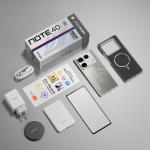Picture a world where you do not have to present your passport, ID, or ticket at the airport let alone the boarding pass. This visionary dream is planned to be materialized in Abu Dhabi Zayed International Airport by 2025 at earliest.
A well-developed facility, which is already a leading global model, Zayed International Airport is far from standing still as it actively steps onto the new path of radical revolution of the modern means of transport. Earlier as the BAA is preparing in earnest for the full implementation of Smart Travel Project, even the tech wizard and billionaire Elon Musk said recently, “US needs to catch up. ”
The primary component of this transformation will be biometrics, which is the state in which one’s identity is established based on distinctive physiological characteristics. They new system will employ face and iris recognition technologies to authenticate passengers’ identity and travel status in particular. That’s why the strength of this technology is the complete exclusion of conventional paperwork at any of the steps of the airports’ service provision, which would contribute to the enhancement of the time needed for travel.
Although the Abu Dhabi airport has been using biometrics in only some areas, specifically on the flights under the partnership with Etihad Airways, the SNP further implies the deployment of smart travel across all the passenger traffic in the airport’s terminals. Andrew Murphy, the Chief Information Officer at Abu Dhabi Airport, highlights the project's innovative nature: ”We are going to nine touchpoints, which no airport in the world has ever done so; it has no pre-registration at all, passengers are automatically identified and verified throughout the travel process through the airport making the entire process extremely fast. ”
The project’s implementation relies on the biometric data gathered by United Arab Emirates’ Federal Authority for (ICP) upon the first entry of a resident/tourist into the country. Its system will be connected to this database to make verification of passengers at every point to be as smooth as possible for all passengers to enjoy.
Murphy also underlined that adoption of this sort of technology could drastically change the passenger flow, stressing, however, that first tests reflect already rather good results. These are claims of getting from the curb into the retail area or to the gate in less than 15 minutes as said by him. To think that it is possible to move thru such amount of space common for such terminal, where up to 45 million passengers per year can be served, in mere minutes would truly be revolutionary.
From the current scenario, it seems that the broader public is all set for such a social change through biometric technology. An IATA online passenger opinion survey conducted in October 2023 also showed that 75% of the passengers would opt for biometric data over paper passport and physical boarded pass. However, for the 25% of the travelers who might be uncomfortable with the technology or who prefer not to interact with machines the traditional methods of verification will still be available.
This option is somewhat consistent with the positions of the global leaders in policymaking since these individuals understand the need to cater to persons who may be unfamiliar with the protocols at the airports they intend to use. It is probably better to have a human being to tell someone, ‘I know you only travel once every two or three years, and during that time, this is what you need to do’. This is what Louise Cole, head of customer experience and facilitation for IATA means when she says that self-service may not be the best bet for frequent travelers. Offering the tourists choices makes a trip to be unique for the different clientèle to fit every segment of consumers.
Thus, for those families that are traveling together with children, traditional approaches will always be useful. Murphy also points out that the biometric system will be implemented for persons who are equal to 12 years old and older, since kids have different facial expressions and, therefore, it is easier to identify them. Also, moving from one country to another with kids will trigger some extra scrutiny to make sure the kids are with the right guardian; this further supports the argument for conventional paperwork.
Interestingly, what Abu Dhabi is trying to achieve is not unique, with other cities/countries in the similar process of realizing paperless travel. Airports all over the world have begun embracing the use of biometric systems in their operations. The IATA report of October 2023 revealed that 46 percent of the travelers had tried biometric systems at an airport; however, no airport had implemented a complete sans-passport environment.
Cole also understands this bit of progress in the industry has been slow, noting that it takes some time to employ a truly contactless biometric experience. ‘I can’t think of another consumer process where you have to halt and provide something over and over,’ she said. However, some airports are improving in this area as follows.
For example, Changi Airport in Singapore is among the airports at the forefront of utilizing biometrics given that the airport collaborated with the government’s immigration authority to design a biometric clearance system open to everybody – residents included. The integration is to be done in phases; the first phase commencing this month. Similarly, learnings like Hong Kong International, Tokyo Narita, Tokyo Haneda, and Delhi’s Indira Gandhi International possess biometric terminals in the major transit zones.
Middle Eastern and Asia-Pacific airports are already leaders in the application of advanced technologies in the processes of air travel. The airports in European countries are equally progressing. One of the landmarks made by IATA was in the last year when the association signed a partnership deal with British Airways to conduct the first-ever live test of a fully digital ID international flight. This paper’s actual flight was Heathrow Rome Fiumicino where the traveller was using only digital ID having passport, visa, and the ticket in the e-wallet and travelling through managed biometric identification.
A similar development is made in 96 arrival zones of the international airports across the United States and 53 places which have the technology for departure zones have also been installed with the biometric systems in Customs and Border Protection agency. These are some major progresses towards the universal approach for biometric traveling, which could redefine the future of the air traveling.
The Smart Travel Project at Abu Dhabi aims to drastically reduce the time required to serve travelers, cutting it from 25 seconds down to just seven seconds. This efficiency boost is a testament to the potential of biometric technology to revolutionize the airport experience.
For Cole, the key to successful implementation lies in standardization and international cooperation. "The benefits of a great customer experience in one airport could be lost if the next airport that passenger goes to has an entirely different way of approaching it," she explains. Ensuring that all trials and technologies are aligned will be crucial for efficiency, safety, and privacy protection.As Abu Dhabi and other airports extend their use of biometric technology, they are setting new benchmarks for the industry. Their efforts could pave the way for a future where document-free travel is the norm, offering passengers a faster, more secure, and more convenient way to navigate the world’s airports.







